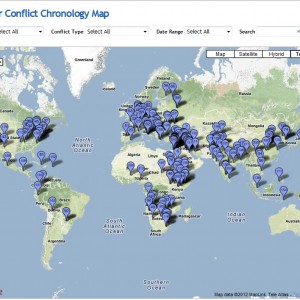Federal Water Tap, May 21: Colorado River Management
As part of its ongoing study of the Colorado River Basin, the Bureau of Reclamation released a technical report that uses six growth scenarios to quantify water demands in 2060. From a 2015 baseline demand of 15.8 cubic kilometers (12.8 million acre-feet), water use from the Colorado increases between 1.2 cubic km (1.0 MAF) and 4.2 cubic km (3.4 MAF). Those figures do not include water deliveries to Mexico or evaporation from reservoirs. A draft of the final report is due in July.
Glen Canyon
The Bureau of Reclamation announced the schedule for the environmental impact statement that will accompany a change in the long-term management plan for Glen Canyon Dam on the Colorado River. The bureau hopes to have a draft EIS ready by next February or March.
Mining and Salmon
The U.S. Environmental Protection Agency has published a draft scientific assessment of the effects of large-scale mining on Alaska’s Bristol Bay watershed. A large copper and gold mine is proposed for the bay’s headwaters, and the EPA is mulling whether to claim regulatory authority via the Clean Water Act. Alaska’s attorney general accused the agency of “overreach,” according to the Associated Press.
USGS Water
The U.S. Geological Survey published a report on how different carbon emissions scenarios will affect river runoff in 14 U.S. river basins. The study found that each basin will see different effects.
Water Quality
The Natural Resources Conservation Service announced a National Water Quality Initiative to prevent nutrient pollution. Farmers and ranchers in 157 watersheds are eligible to apply for grants.
Federal Water Tap is a weekly digest spotting trends in U.S. government water policy. To get more water news, follow Circle of Blue on Twitter and sign up for our newsletter.
Brett writes about agriculture, energy, infrastructure, and the politics and economics of water in the United States. He also writes the Federal Water Tap, Circle of Blue’s weekly digest of U.S. government water news. He is the winner of two Society of Environmental Journalists reporting awards, one of the top honors in American environmental journalism: first place for explanatory reporting for a series on septic system pollution in the United States(2016) and third place for beat reporting in a small market (2014). He received the Sierra Club’s Distinguished Service Award in 2018. Brett lives in Seattle, where he hikes the mountains and bakes pies. Contact Brett Walton





The demand for water is getting larger and larger day by day. The main reason behind this is the water wastage. People are not aware of the importance of water and thus are taking this issue very lightly. Some more dedicated steps are required to guarantee the water availability in future.